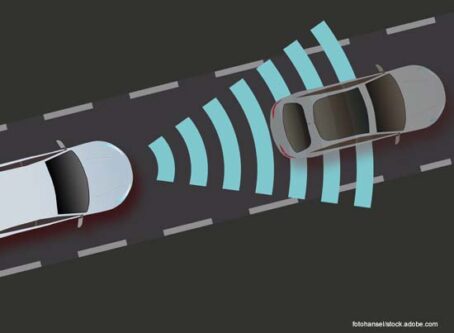Eleven states push to end daylight saving time switch
Legislators around the country continue their pursuit to do away with twice-annual time switch.
The issue has gained steam in recent years. Political figures from both sides of the aisle have expressed support to do away with changing clocks in the spring and fall.
Currently, Arizona and Hawaii are the lone states not to take part in time switches. The two states do not recognize daylight saving time. Neither do the United States’ five populated territories.
Alabama and Florida acted last year to adopt year-round DST. However, the states cannot make the shift unless Congress changes federal law.
Federal law does not require states to observe DST, but if they choose to follow the time change they must adhere to the dates set.
The U.S. Department of Transportation states that DST is observed because it saves energy, saves lives and prevents traffic injuries, and reduces crime.
Critics counter the time changes may have been useful for some during a bygone era but it provides little if any real benefit.
Among the factors cited for doing away with time switches is vehicle crashes.
Bipartisan effort calls for federal action
In Congress, U.S. Sen. Marco Rubio, R-Fla., and Rep. Vern Buchanan, R-Fla., introduced the Sunshine Protection Act to recognize daylight saving time all year for the entire country.
The federal effort was recently strengthened with the addition of Sen. Patty Murray, D-Wash., to the list of bill sponsors.
Additionally, President Donald Trump tweeted this spring his support for doing away with time switches and permanently observing daylight saving time.
State action
As support grows at the federal level for eliminating time switches, officials in at least 30 statehouses this year have discussed or are discussing legislation to do the same. Among the reasons given for abandoning time switches is traffic safety.
In the state of Washington, Gov. Jay Inslee signed into law a bill to have Congress authorize the state’s observance of year-round Pacific Daylight Time.
Rep. Marcus Riccelli, D-Spokane, said his bill – HB1196 – is a first step to abandon the “archaic tradition” of time switches.
“It’s time to #DitchTheSwitch and move our time zone in unison to permanent daylight saving time,” Riccelli said in prepared remarks.
One new law in Tennessee calls for year-round observance of DST.
Gov. Bill Lee signed into law an amended version of the legislation earlier this month.
As introduced, HB247 called for keeping the Volunteer State on standard time year-round as long as at least six of Tennessee’s eight bordering states adopted the change.
Change was made to the legislation to simplify enactment, as long as federal authorities allow states to take action.
“This bill is wildly popular amongst our constituents throughout the state,” Sen. Steve Dickerson, R-Nashville, said on the Senate floor before the bill’s final vote.
Earlier this year in Arkansas, a resolution was approved that calls for the state to permanently observe DST.
HR1034 does include one caveat. In addition to needing federal approval, eliminating time switches would be contingent on Arkansas’ six neighboring states also making the change.
An amended Illinois bill would also make DST permanent.
SB533 awaits a final vote on the Senate floor before it can advance to the House.
In Oregon, a bill that has the backing of Gov. Kate Brown would abolish time switches to maintain DST throughout the year.
The portion of the state in the Mountain Time Zone (Malheur County) would be exempted from permanent daylight time.
The Senate voted 23-4 to advance the bill after removing language that would have referred to the question to voters. SB320 was scheduled for a hearing Wednesday, May 29, in the House Rules Committee.
In addition to the necessary approval from Congress for the change to take effect in Oregon, the bill states that both Washington and California would also need to agree to the switch.
With the backing of California voters in November 2018, the Assembly has voted unanimously to do away with time switches in the state.
Voters approved a ballot question last fall authorizing the Legislature to take action to eliminate the time switch and potentially make the move to DST all year.
AB7 must receive two-thirds support in both statehouse chambers for passage. Gov. Gavin Newsom also must endorse the change.
If the above steps are taken federal authorization would be the final phase necessary to make the change.
Legislative efforts in the Carolinas also call for changes to the time rule.
A bill on the South Carolina governor’s desk
S11 states that if Congress amends U.S. code to permit states to observe year-round DST it is the intent of the Legislature for “daylight saving time to be the year-round standard time.”
In neighboring North Carolina, the House voted 85-27 in support of legislation to avoid the twice-annual time shift.
Instead, HB350 would keep the Tar Heel State on DST all year.
The bill has moved to the Senate for further consideration.
An Ohio Senate bill, SB119, would align the state’s clocks with DST year-round.
During testimony to the Senate General Government and Agency Review Committee, Sen. Kristina Roegner, R-Hudson, said that biannual time changes have a negative effect on driving.
“We have found that biannual time changes have been shown to endanger the lives of drivers due to sleep deprivation.”
Legislative efforts underway in Delaware and New Hampshire would remove the states from Eastern Standard Time – effectively adopting yearlong DST.
The New Hampshire House has acted to approve a bill to convert the state to Atlantic Standard Time all year.
HB567 contains a requirement that Maine and Massachusetts also make the change to take effect in New Hampshire. A proposed amendment to include Vermont was rejected by the New Hampshire House.
A Delaware bill would have the state adopt Atlantic Standard Time.
SB73 specifies that Pennsylvania, New Jersey and Maryland must also adopt the change for Delaware to make the switch.









